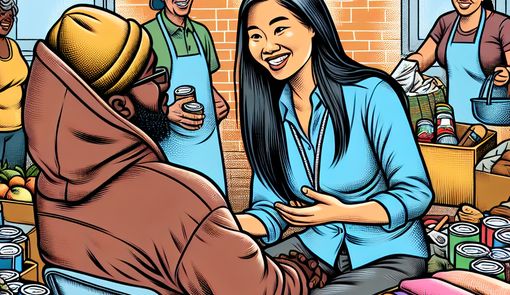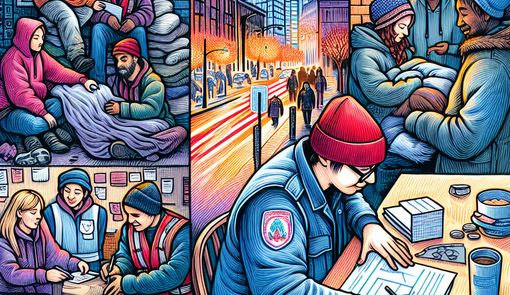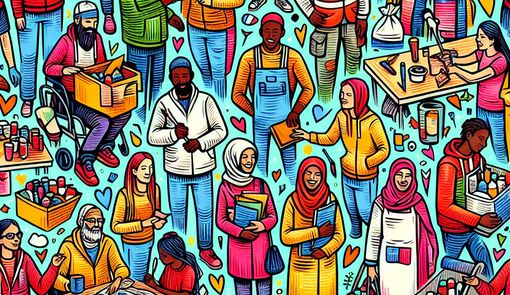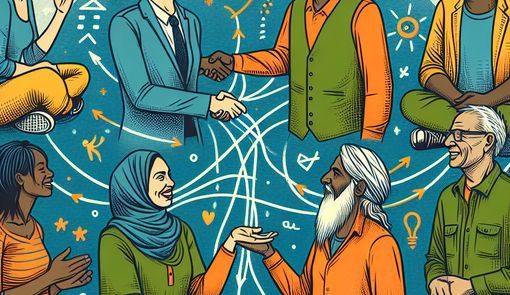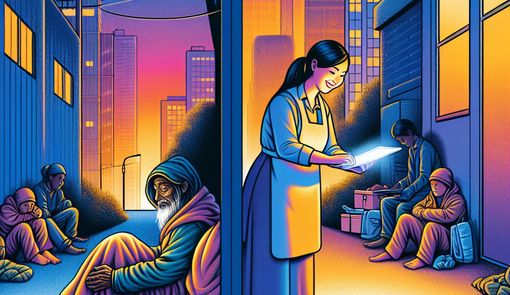Top Skills Every Homeless Outreach Coordinator Should Have
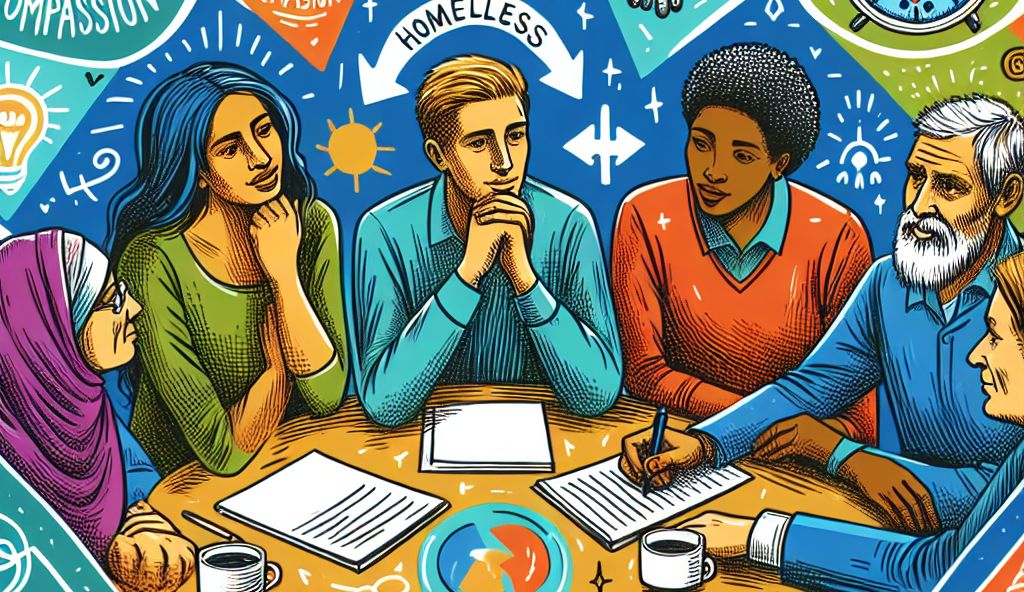
The role of a Homeless Outreach Coordinator is both challenging and rewarding. Charged with the task of not just connecting with the homeless population but also coordinating with various organizations and managing resources, these professionals serve as bridges between those in need and the assistance available to them. Here we will explore the top skills necessary for someone in this position to excel and how to develop them.
Empathy and Compassionate Communication
Empathy sits at the core of a successful outreach coordinator's skill set. This ability to understand and share the feelings of another is paramount when working with individuals who may be going through one of the most challenging periods of their lives. Developing empathy involves active listening, patience, and the genuine desire to comprehend another person's perspective. Compassionate communication involves choosing words carefully, being non-judgmental, and recognizing the emotional state of the person you’re engaging with. You can hone these skills through role-playing exercises, attending workshops on empathy, and practicing mindfulness.
Crisis Management
Given the unpredictability of the circumstances that lead someone to homelessness, a coordinator must be poised to handle crises. This might include medical emergencies, mental health crises, or conflicts within shelter environments. Developing crisis management skills often means pursuing formal training in conflict resolution, first aid, and potentially mental health first aid. It’s also valuable to participate in simulations that prepare you for real-world situations, allowing you to respond quickly and efficiently when a crisis strikes.
Networking and Relationship Building
A Homeless Outreach Coordinator must establish strong networks with local agencies, shelters, and non-profits to provide comprehensive support to the homeless. To excel in networking and relationship building, one should be proficient in interpersonal communication, be reliable, and have a good understanding of the structural landscape of social services. Developing these skills might involve attending networking events, volunteer coordination, and maintaining a presence at community meetings where cross-organizational collaboration is key.
Advocacy and Public Speaking
Part of the outreach coordinator's role is to be an advocate for the homeless population. This can involve influencing policy, creating awareness, and even fundraising. Public speaking is a crucial skill in this regard, as you may need to present to stakeholders, at community events, or in media appearances. You can improve your advocacy and public speaking skills by joining organizations like Toastmasters, participating in advocacy groups, or by taking courses on persuasive communication.
Cultural Competency
Understanding and respecting the diverse cultural backgrounds within the homeless community is vital. A coordinator must have the ability to communicate effectively across cultural boundaries and avoid misunderstandings. Developing cultural competency involves self-education about different cultures, training on inclusivity and unconscious bias, and immersing oneself in communities different from one’s own.
Organizational Skills
Strong organizational skills are essential for managing the numerous tasks and responsibilities that come with coordinating outreach programs. Time management, data keeping, and resource coordination are all elements that a proficient outreach coordinator must master. These skills can be developed through professional development courses, productivity tool usage, and learning time management strategies such as the Eisenhower Box or the Pomodoro Technique.
Resourcefulness and Problem-Solving
A key skill for a Homeless Outreach Coordinator is the ability to be resourceful and solve problems creatively. Unexpected challenges are a norm, and thinking on your feet can make a significant difference. Developing problem-solving skills can involve pursuing critical thinking exercises, engaging in strategic games that promote creativity, and learning from case studies.
Self-Care and Resilience
Finally, the work of an outreach coordinator can be emotionally taxing. Self-care is an important skill that encompasses knowing when to take a break, managing stress, and maintaining personal well-being. Resilience, or the capacity to recover quickly from difficulties, is also crucial. One can develop self-care and resilience by setting professional boundaries, practicing relaxation techniques, and engaging in regular physical exercise.
In conclusion, excelling as a Homeless Outreach Coordinator requires a blend of soft and hard skills, all of which can be nurtured and developed over time. From genuine care and understanding to practical organizational prowess, these skills lay the foundation for impactful work in aiding the homeless population. Taking the initiative to continually improve in these areas will not only benefit those you serve, but also enhance your career in the field of social work.
Frequently Asked Questions
What qualifications are required to become a Homeless Outreach Coordinator?
To become a Homeless Outreach Coordinator, a minimum of a bachelor’s degree in social work, psychology, counseling, or a related field is typically required. Some positions may require a master’s degree for advanced roles. Additionally, practical experience in social work, case management, or community outreach is highly beneficial.
How can someone improve their empathy and compassionate communication skills?
Improving empathy and compassionate communication skills can be achieved through various methods. Practice active listening in everyday conversations, participate in empathy workshops or training sessions, and engage in mindfulness activities to enhance your ability to connect with others on a deeper level.
What is the role of crisis management in the duties of a Homeless Outreach Coordinator?
Crisis management is essential for a Homeless Outreach Coordinator to handle unforeseen emergencies effectively. Training in conflict resolution, first aid, and mental health first aid is crucial in preparing for crisis situations. Simulations and real-world practice scenarios can also help in developing the necessary skills to address emergencies promptly.
How important is networking for a Homeless Outreach Coordinator?
Networking is vital for a Homeless Outreach Coordinator to establish connections with local agencies, shelters, and non-profits. Building strong relationships within the community facilitates the coordination of resources and enhances support for the homeless population. Attending networking events, collaborating with other organizations, and volunteering can help in expanding your network.
Why is cultural competency important for a Homeless Outreach Coordinator?
Cultural competency is crucial for a Homeless Outreach Coordinator to effectively communicate and engage with individuals from diverse cultural backgrounds. Understanding different cultures, promoting inclusivity, and addressing unconscious biases are key components of cultural competency. It enables coordinators to provide tailored support and prevent misunderstandings in their outreach efforts.
How can one develop resilience and self-care skills in the demanding role of a Homeless Outreach Coordinator?
Developing resilience and self-care skills is essential to manage the emotional challenges of being a Homeless Outreach Coordinator. Setting boundaries, practicing self-care routines, seeking support from peers or counselors, and engaging in stress-relieving activities like exercise or meditation can help in maintaining emotional well-being and sustaining resilience in the face of adversity.
Further Resources
For those interested in further developing their skills as a Homeless Outreach Coordinator, here are some valuable resources to aid in your professional growth:
- National Alliance to End Homelessness: A comprehensive resource center providing research, advocacy tools, and policy guidance to address homelessness at a national level.
- Homeless Shelter Directory: An online directory of homeless shelters across the United States, offering information on locations, services provided, and contact details.
- SAMHSA's Homelessness Programs and Resources: The Substance Abuse and Mental Health Services Administration offers resources and programs focused on addressing homelessness, mental health, and substance abuse.
- National Coalition for the Homeless: A leading advocacy organization dedicated to preventing and ending homelessness through policy advocacy, public education, and grassroots organizing.
- HUD Exchange - Training & Tools: The U.S. Department of Housing and Urban Development provides training resources and tools for Continuums of Care (CoC) programs, aiding in efforts to assist individuals experiencing homelessness.
- The Homeless Hub: A research-based online resource center focusing on homelessness issues, housing, and social inclusion.
- National Health Care for the Homeless Council: A network of health care providers, administrators, and advocates working to improve health care for people experiencing homelessness.
- The Homeless Outreach Specialist Training Manual: A detailed manual providing guidance and training for outreach specialists working with homeless populations.
These resources offer a mix of educational materials, advocacy tools, and practical guidance to enhance your knowledge and skills in the field of homeless outreach coordination. Continuing education and staying informed through these resources can further empower you to make a positive impact in the lives of the homeless community.

